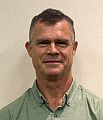WATER RECONCILIATION IS ABOUT INTERWEAVING INDIGENOUS KNOWLEDGE & WESTERN SCIENCE: “Interweaving is not integration, just as equality is not about assimilation and creativity is not empirical. Interweaving is collaborative and incremental rather than a revolutionary process,” stated Michael Blackstock, Independent Indigenous Scholar and founder of the Blue Ecology Institute (October 2021)

“Blue Ecology is meant to be a companion because it augments existing Western science hydrology rather than displacing this knowledge. Collaborators identify packets of knowledge that would benefit from the interweaving process. My question for the Western science world is this: Are you prepared and willing to change your definition of water in science? This is what reconciliation really gets down to when we are talking about interweaving Indigenous knowledge and Western science,” stated Michael Blackstock.










